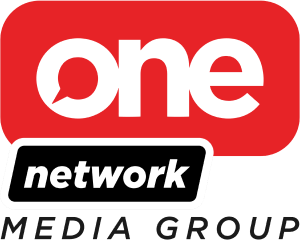(AP) — At Miami’s first preseason game of the year, something caught Heat coach Erik Spoelstra’s attention as he stood in his customary spot between his team’s bench and the scorer’s table.
Fans, he noticed, were just a couple feet away again.
“Front-row seats that were filled,” Spoelstra said. “We haven’t had that for a year and a half.”
It’s a welcome sign toward a return to normalcy. The NBA is welcoming their fans back — with hopes everyone plays by the rules again.
The league is expecting full arenas when the season starts next week, and keeping everyone — fans, players and coaches — safe remains an utmost priority. Mindful of high-profile incidents of unruly fan behavior in recent years, the league has partnered with the National District Attorneys Association to connect franchises with prosecutors who can serve as points of contact with teams when misconduct occurs.
The hope is simple, that any fan who decides to be unruly understands that, if caught, consequences will be swift and severe, as was the case in last season’s playoffs when Brooklyn’s Kyrie Irving had a bottle thrown at his head in Boston and Atlanta’s Trae Young was spit at in New York. In both cases, the offending fan was found and banned from those respective arenas; charges were filed in the Boston case as well. And those weren’t the only cases last spring, either.
“Certainly, deterrence is a goal,” said Elizabeth Maringer, a senior vice president and assistant general counsel for the NBA. “It absolutely is a goal. It’s why we have signage, it’s why we post our fan code of conduct, it’s why we make public-address announcements about behavior. We want to discourage anyone who’s thinking of doing something from doing it, particularly if it’s going to cross the line into criminal behavior.”
The NBA met with players in the summer of 2019 and emerged from those talks with a renewed focus on ensuring safety after incidents such as Russell Westbrook being subjected to racist taunts in Salt Lake City — he also had popcorn dumped on him in Philadelphia last season — and Kyle Lowry being shoved during an NBA Finals game at Golden State by a minority partner in the Warriors’ ownership group.
The pandemic hit a few months later. The 2019-20 season resumed with no fans, last season started with empty buildings, and most cities didn’t have anything close to full arenas for games again until the playoffs last spring and summer. It was during the playoffs when Irving was struck and someone spit toward Young.
“Imagine if a stranger showed up at your job and threw a water bottle at your head,” Suffolk County District Attorney Rachael Rollins said when charges were brought against Cole Buckley, who allegedly threw the bottle at Irving. “We have mandated civility and sportsmanship in all youth sports, yet condone profanity-laced chants and a ‘Shut Up and Dribble’ mentality for certain professional sports and athletes? There is a growing and disturbing trend in the NBA of players being physically and verbally assaulted with profanity and blatantly racist statements. That behavior is completely unacceptable.”
Players have been echoing that sentiment for some time now.
“Fans have got to grow up at some point,” Brooklyn’s Kevin Durant said after the bottle was thrown at Irving. “I know that being in the house for a year and a half with the pandemic has got a lot of people on edge, has got a lot of people stressed out. But when you come to these games you’ve got to realize: These men are human. We’re not animals. We’re not in the circus.”
The NDAA has partnered with sports organizations in the past. The group’s president, Billy West, knows all about how fans can be passionate; he went to North Carolina State, where he played golf and got to experience first-hand how raucous basketball arenas can be in the Atlantic Coast Conference.
“I’m from the home of college basketball and I’m very passionate, but there is a line that doesn’t need to be crossed,” West said. “We’re not looking to try to prosecute the passionate fan that is there rooting for their team. But when it crosses the line and becomes a criminal offense, that changes the dynamic … so to be able to put the NBA in contact with the right people in each jurisdiction, I think is very important and you need that groundwork done before an incident happens.”
The ongoing pandemic has added an extra layer of complexity to the safety and behavior issue, in that some arenas are requiring fans to be vaccinated or show proof of negative tests — and the NBA, in all arenas, is requiring face coverings for those fans in sections within close proximity to the court except when actively eating or drinking. Some arenas are also mandating that all fans, no matter where they’re seated, wear masks.
Spoelstra said it hasn’t been awkward having fans back in their old spots.
“It felt the way it used to feel, even with people looking in on the huddle,” he said. “It’s all good.”




